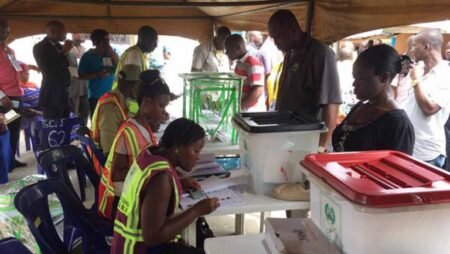Nigerian senior secondary school students in arts and humanities will no longer be required to present a credit in mathematics in their Senior School Certificate Examination, which is administered by the West African Examination Council and the National Examination Council, as a condition for admission to universities and polytechnics, the Federal Ministry of Education announced on Tuesday.
For years, admission seekers in the arts and humanities, like their counterparts in scientific and social sciences, have been required to obtain five credits, including mathematics and English language, in order to be admitted to higher education institutions.
“The revised National Guidelines for Entry Requirements into Nigerian Tertiary Institutions are designed to remove barriers while maintaining academic standards.
“The new framework applies to universities, polytechnics, colleges of education, and Innovation Enterprise Academies across the country as follows:
“Universities: Minimum of five (5) credit passes in relevant subjects, including English Language, obtained in not more than two sittings. Mathematics is mandatory for science, technology, and social science courses.
“Polytechnics (ND Level): Minimum of four (4) credit passes in relevant subjects, including English Language for non-science courses and Mathematics for science-related programs.
“Polytechnics (HND Level): Minimum of five (5) credit passes in relevant subjects, including English Language and Mathematics.
“Colleges of Education (NCE Level): Minimum of four (4) credit passes in relevant subjects, with English Language mandatory for Arts and Social Science courses, and Mathematics required for Science, Vocational, and Technical programs,” a statement by the FME’s spokesperson, Folasade Boriowo, said.
An education analyst, Ayodamola Oluwatoyin, who talked with our correspondent in Abuja, praised the move.
“This is a brilliant reform, which we hope will open the doors and improve the ease of admissions into tertiary institutions for more seekers.”
Dr. Tunji Alausa, the Minister of Education, hailed the reform as a deliberate effort to increase access to postsecondary education.
The government also approved a complete revision of admission rules for all tertiary institutions in the country, bringing the average yearly intake from 700,000 to one million students.
According to the administration, the new strategy intends to increase access to higher education by allowing for an additional 250,000 to 300,000 admissions per year.
The minister emphasized that the revision was necessary following years of limited access, which prevented many competent candidates from gaining admission despite reaching the needed qualifications.
“Every year, over two million candidates sit for the Unified Tertiary Matriculation Examination (UTME), yet only about 700,000 gain admission. This imbalance is not due to lack of ability but outdated and overly stringent entry requirements that must give way to fairness and opportunity.
“The reform is a deliberate effort to expand access to tertiary education, creating opportunities for an additional 250,000 to 300,000 students each year. It reflects our commitment to ensuring that every Nigerian youth has a fair chance to learn, grow, and succeed—putting the Renewed Hope Agenda into action,’’ he said.
The updated National Guidelines for Entry Requirements into Nigerian Tertiary Institutions are aimed at minimizing barriers while maintaining academic standards.










